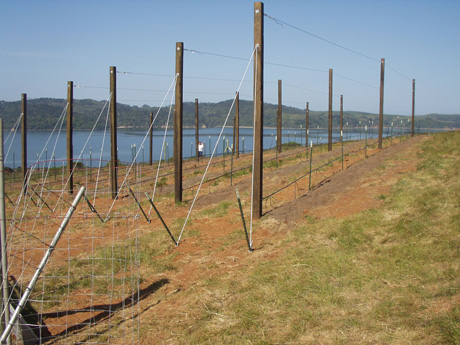Here is the second half of the photos I took at the 2008 World Beer Cup Gala Awards ceremony, which was held last Saturday in San Diego, California.

Brendan Moylan and Arne Johnson, from Marin Brewing, picking one of the three medals Arne won.

The hard-working staff of the Brewers Association who put on Craft Brewers Conference and the World Beer Cup competition. For many more award photos, go to part 1 of the photo gallery, followed by part 2.
For many more photos from the second half of this year’s World Beer Cup Awards, visit the photo gallery.













